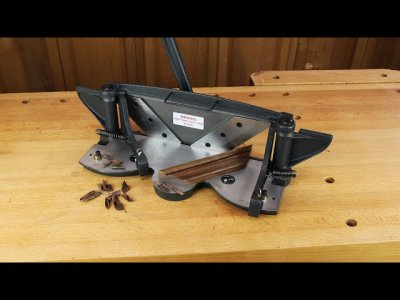The problem with made-in-China products is not that they are turning out junk. The problem is that much of what they produce is very good.
As an example: Lion, a New England based company made a very useful and precise machine that effectively mimicked a shooting board for planes, for refining miters.
It was patented and an industry standard for many years in the picture framing business. It was a heavy, cast iron device that was patent protected. This is the Lion miter trimmer:

When their patent ran out, the Chinese copied it at about 1/2 the cost. Unfortunately for Lion, the copies were very good—almost indistinguishable from the original. The main fault of these Chinese knock-offs was the quality of the steel in their blades. They did not remain sharp as long as the Lion blades did.
But the framers all sent their blades out to a service and you did not always get back the blades that you sent in. Instead you might get back a matching blade. And that matching blade might be Chinese. It was not a deliberate act. They kept several sets of sharpened blades in stock and would ship out the sharp blade the same day the dull blade arrived. Service was excellent. But unless you engraved your name on the blade, you might not get back your original blade.
So, effectively, the one advantage Lion had (better blades) evaporated.
Lion is no out of buses (and has been for years). Companies like Rockler, Lee Valley, Grizzley, Infinity, etc. all carry the knockoffs.
So the problem, from Lion’s viewpoint, was not that the Chinese were producing junk. The problem was that the stuff was really good.
Contrast that with the knockoffs from India in the 1960s. The Indian knockoffs had gorgeous chrome plating, but the castings would crack the first time you stressed the tools. They quickly disappeared from the market place.

